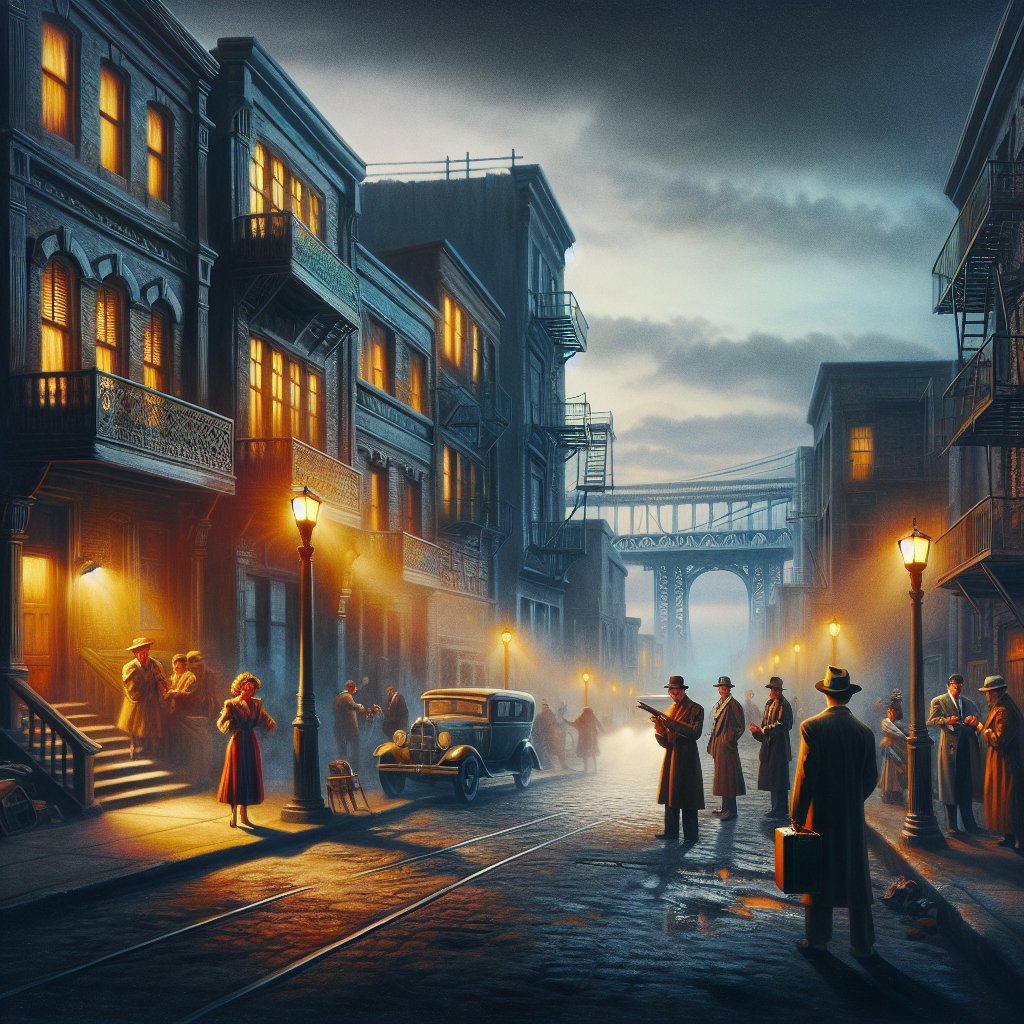
What Are Cult Films? Uncover the Magic Behind These Classics!
Have you ever wondered what are cult films and why they have such a dedicated following? Cult films are those unique gems in the cinematic world that, despite not always achieving mainstream success, manage to capture the hearts and minds of a niche audience. These movies often defy conventional storytelling and embrace unconventional themes, characters, and visual styles. From midnight screenings to fan conventions, cult films foster a sense of community and shared passion among their admirers.
Unlike blockbuster hits, cult films usually gain their status over time through word-of-mouth, underground screenings, and home video releases. They often challenge societal norms and present alternative perspectives, making them resonate deeply with viewers who feel a connection to the film's subversive nature. The allure of cult films lies in their ability to evoke a sense of discovery and belonging, as fans find themselves part of an exclusive club that 'gets' the movie's unique charm.
At The Dude Abides Online Shop, we celebrate the spirit of these timeless classics through our collection of merchandise that captures the essence of cult films like "The Big Lebowski." Our products, from graphic tees to hoodies, allow you to express your love for these iconic movies in style. Click on the product links to view the Dudes designs.
Defining Characteristics of Cult Films

Cult films are distinguished by several defining characteristics that set them apart from mainstream cinema. One of the most notable features is their *dedicated fanbase*. These movies often inspire a level of devotion and loyalty that goes beyond typical fandom, with audiences frequently organizing midnight screenings, cosplay events, and fan conventions.
Another hallmark of cult films is their *unconventional storytelling*. These movies often break the rules of traditional narrative structures, opting instead for experimental plots, unique visual styles, and eccentric characters. This departure from the norm allows cult films to explore themes and ideas that might be too risky or niche for mainstream movies.
Additionally, cult films often feature *subversive or controversial content*. Whether it's pushing the boundaries of social norms, tackling taboo subjects, or presenting alternative lifestyles, these films aren't afraid to challenge the status quo. This rebellious spirit is a key part of their appeal, attracting viewers who appreciate cinema that dares to be different.
Finally, many cult films achieve their status through a combination of *critical re-evaluation and word-of-mouth*. While they may not have been commercial successes upon their initial release, these movies often gain a second life through home video, online streaming, and enthusiastic fan recommendations. Over time, they earn a place in the cultural lexicon, celebrated for their originality and enduring impact.
Historical Evolution of Cult Films
The history of cult films is a fascinating journey that mirrors the evolution of cinema itself. In the early 20th century, the concept of a 'cult film' didn't really exist. However, certain movies began to attract dedicated followings, often because they were seen as *ahead of their time* or *misunderstood* by mainstream audiences.
During the 1950s and 1960s, the rise of *midnight movie screenings* helped to solidify the status of certain films as cult classics. Cinemas would show unconventional or controversial films late at night, drawing in audiences who were eager for something different from the mainstream fare. Movies like "Plan 9 from Outer Space" and "Night of the Living Dead" became staples of these midnight screenings, gaining loyal fanbases.
The 1970s and 1980s saw a boom in the production of films that would later be considered cult classics. Directors like John Waters and David Lynch began to push the boundaries of what was acceptable in cinema, creating movies that were both shocking and deeply engaging. The advent of *home video* in the 1980s further contributed to the rise of cult films, as fans could now watch and rewatch their favorite movies at home, sharing them with friends and family.
In the 1990s and 2000s, the internet played a crucial role in the dissemination and celebration of cult films. Online forums, fan sites, and social media allowed fans to connect and share their passion for these unique movies, helping to elevate obscure films to cult status. Today, streaming services have made it easier than ever to discover and enjoy cult films, ensuring that their influence continues to grow.
Popular Cult Films Through the Decades

Exploring the landscape of *popular cult films* through the decades offers a vivid reflection of changing cultural tastes and societal shifts. Each era has its own unique flavor, contributing to the rich tapestry of cult cinema.
In the **1940s and 1950s**, films like "The Rocky Horror Picture Show" and "Reefer Madness" gained traction. While "The Rocky Horror Picture Show" is famed for its midnight screenings and participatory audience culture, "Reefer Madness" became a cult classic due to its campy portrayal of marijuana use and exaggerated anti-drug message.
The **1960s and 1970s** saw the rise of films like "Easy Rider" and "A Clockwork Orange." "Easy Rider" captured the spirit of the counterculture movement, while Stanley Kubrick’s "A Clockwork Orange" pushed boundaries with its provocative and violent content, sparking debates and fostering a devoted following.
The **1980s** brought us iconic cult films such as "The Big Lebowski" and "Blade Runner." "The Big Lebowski," a Coen Brothers masterpiece, captivated audiences with its quirky characters and memorable quotes. "Blade Runner," on the other hand, offered a dystopian vision of the future that resonated deeply with sci-fi enthusiasts.
In the **1990s**, "Fight Club" and "Pulp Fiction" emerged as cult classics. David Fincher’s "Fight Club" delved into themes of consumerism and identity, while Quentin Tarantino’s "Pulp Fiction" was celebrated for its non-linear narrative and sharp dialogue.
Moving into the **2000s and beyond**, films like "Donnie Darko" and "Scott Pilgrim vs. The World" captured the imagination of audiences. "Donnie Darko"’s blend of science fiction and psychological drama created a dedicated fanbase, while "Scott Pilgrim vs. The World" became a touchstone for its unique blend of romance, comedy, and video game aesthetics.
These films, each in their own way, have left an indelible mark on the cultural landscape, earning their place in the annals of cult cinema and continuing to inspire new generations of fans.
Impact of Cult Films on Pop Culture

The *impact of cult films* on pop culture is both profound and far-reaching, permeating various aspects of media, fashion, and even everyday language. These films often serve as a mirror, reflecting and influencing societal norms and trends.
One of the most significant ways cult films impact pop culture is through their *quotable lines and memorable characters*. Movies like "The Big Lebowski" have given us phrases such as "The Dude abides," which have transcended the film itself and become part of the cultural lexicon. Similarly, "Monty Python and the Holy Grail" has contributed to everyday banter with lines like "It’s just a flesh wound."
Cult films also influence *fashion and style*. The quirky and distinctive wardrobe choices in films like "Clueless" and "Rocky Horror Picture Show" have inspired fashion trends and themed parties. Fans often emulate their favorite characters, creating a sense of community and shared identity.
In terms of *media and entertainment*, cult films have a lasting legacy. They often inspire spin-offs, remakes, and references in other media. For instance, the influence of "Blade Runner" can be seen in numerous sci-fi films and TV shows, from its aesthetic to its themes of artificial intelligence and dystopia.
Moreover, cult films frequently *challenge the status quo*, pushing the boundaries of conventional storytelling and filmmaking. They provide a platform for experimental and unconventional narratives, which can lead to broader acceptance of diverse genres and styles in mainstream media.
Finally, the *fan communities* that form around cult films are a testament to their enduring appeal. These communities organize events, create fan art, and engage in discussions that keep the spirit of the film alive. The sense of belonging and shared enthusiasm among fans fosters a unique cultural phenomenon that extends beyond the screen.
In essence, cult films are more than just movies; they are cultural touchstones that inspire and shape the world around us, leaving a lasting imprint on pop culture.
Why Cult Films Continue to Thrive

Cult films continue to thrive for a multitude of reasons, cementing their place in the annals of film history and popular culture. One of the primary reasons is their *ability to resonate deeply with niche audiences*. These films often tackle unconventional themes or present unique storytelling techniques that mainstream movies shy away from, making them particularly appealing to viewers seeking something different.
The *strong sense of community* among fans also plays a crucial role. Enthusiasts of cult films are known for their dedication and passion, often organizing fan events, conventions, and online forums where they can discuss and celebrate their favorite movies. This communal experience enhances the film's appeal, making it a shared cultural touchstone.
Another factor is the *timelessness of their content*. Cult films like "The Big Lebowski" and "Rocky Horror Picture Show" remain relevant years after their release. Their quotable lines, memorable characters, and iconic scenes continue to capture the imagination of new generations, ensuring that these films are passed down and discovered anew.
The *accessibility of cult films in the digital age* cannot be overstated. Streaming platforms, social media, and fan sites make it easier than ever for people to discover and share these films. The availability of these movies online has broadened their audience, allowing them to reach fans worldwide.
Moreover, *merchandising and memorabilia* play a significant role in keeping cult films in the public eye. Fans love to express their appreciation through themed clothing, accessories, and collectibles. This not only keeps the film's spirit alive but also introduces the movie to potential new fans. If you're looking to celebrate your love for cult classics, be sure to click on the product links to view the Dude's designs.
Finally, the *rebellious nature* of cult films appeals to audiences who appreciate stories that push boundaries and challenge the norm. These films often become symbols of counterculture, resonating with those who see themselves as outsiders or who crave artistic authenticity.
In conclusion, the enduring appeal of cult films lies in their uniqueness, the passionate communities they foster, and their ability to remain relevant across generations. They are more than just movies; they are cultural phenomena that continue to inspire and captivate audiences worldwide.


